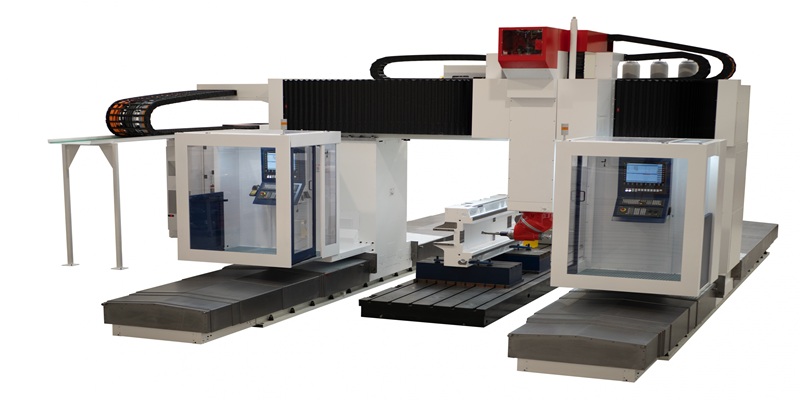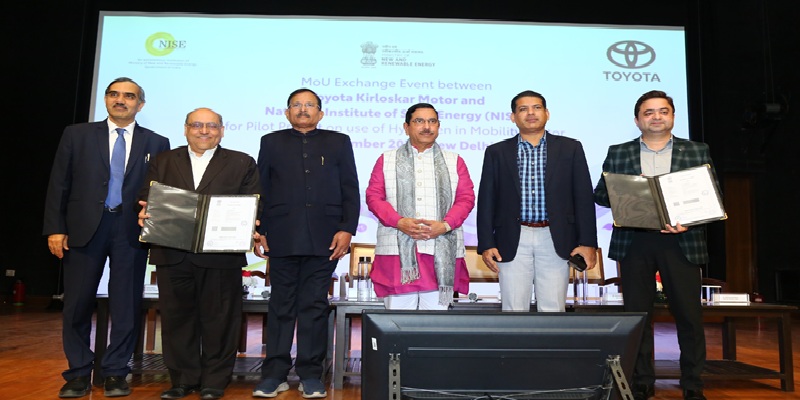Schedule a Call Back
Why automation is key for India's $1 trn manufacturing economy?
 Articles
Articles- Nov 28,23
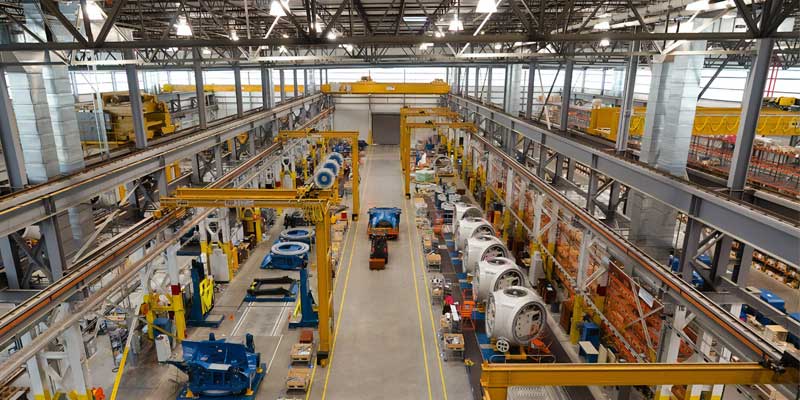
Changing manufacturing landscape
Against this backdrop, shopfloors in India are undergoing a significant transformation to cope with the requirements of globalisation, shorter product life cycles, changes in market & demand, and rapid technology advancements. Manish K Jha, Director - Engine Business, Operations and Supply Chain, Cummins India, elaborates, "We are witnessing manufacturing companies transitioning from dedicated manufacturing systems to flexible and reconfigurable systems to reduce the lead time between different products. The goal is to connect humans and machines (smart systems) to achieve flawless flexibility and agility at the lowest possible cost. This involves the adoption of both hardware and software technologies including integration of IoT (Internet of Things) devices, RFID systems, and smart sensors on machinery that allow real-time data collection; along with sophisticated Manufacturing Execution Systems (MES) and Enterprise Resource Planning (ERP) software enabling seamless communication, data acquisition and analysis across the manufacturing process. With these integrations, shopfloors are becoming more agile, responsive, efficient, and competitive in domestic as well as global markets."
The manufacturing industry is also undergoing a profound transformation due to the advent of automation, Artificial Intelligence (AI), Machine Learning (ML), IoT, data analytics, and cloud computing. These technological innovations are revolutionising traditional manufacturing processes, resulting in increased efficiency, cost reduction, and improved productivity. Subrata Karmakar, President - Robotics and Discrete Automation, ABB India, observes, "The manufacturing segment has been consistently gaining the spotlight owing to its support towards revitalising the economy. The segment is constantly evolving with integration of fully automated, connected and digitally optimised factories, keeping up with the demand for new and innovative product methods. The industrial revolution 4.0 has witnessed the rise of core computing technologies like AI, ML, Big Data, cloud computing, cyber security along with other physical technologies like automation and robotics, IoT, CPS, AM. Since smart manufacturing systems are an enabler of fully integrated and collaborative manufacturing systems, these technologies ensure agility, flexibility in manufacturing. This results in meeting the ever-evolving needs in smart factories to meet the customer needs and keep up with the supply on a real time basis."
With sustainability and eco-consciousness on the rise, more companies are embedding sustainability goals into everything they do; thus, resulting in innovative business models. Subrata Karmakar states, "Unprecedented supply chain disruptions encourage the industry to move faster and become more resilient than ever before – to stay ahead of the curve. The growing infrastructure and road developments, also lead factories into a new era of connectivity. Problems can be solved as soon as they arise, ensuring safety, optimising production levels, and reducing costs. Software-defined solutions enable fast changeovers to meet the consumer requirements as well as workforce and supply chain dynamics."
Cummins India serves as a good example of how automation has redefined its manufacturing prowess. “Automation has brought a profound shift, substantially elevating efficiency and productivity by substituting human labor for repetitive tasks. This transition has resulted in consistent quality, higher output, and reduced labour costs. Ubiquitous automation at Cummins India has not only increased operational efficiency but has also improved product quality and enhanced delivery performance,” explains Shubhankar Chatterji, Chief Supply Chain Officer, Cummins India.
Automation helps in streamlining production processes, enhancing efficiency and reducing manual intervention. AI and ML play instrumental roles in predictive maintenance, quality control, and process optimisation, contributing to improved overall operational performance. "The adoption of Internet of Things (IoT) devices has facilitated real-time monitoring and data collection, enabling better decision-making and heightened visibility across the production chain. Data analytics has emerged as a key driver, offering actionable insights for informed decision-making and continuous process improvement. Additionally, the integration of cloud technologies has revolutionised data storage, accessibility, and collaboration, fostering a more agile and interconnected manufacturing ecosystem. These technological advancements collectively signify a paradigm shift in the Indian manufacturing sector, positioning it at the forefront of innovation and efficiency on the global stage,” elaborates Ranjit Patil, Head CoE – Manufacturing Operations Management, Tata Technologies.
Demand for robots is growing fast
In the realm of automation and digital manufacturing, several prominent emerging trends are poised to reshape the industry. Robotics and automation, which have been transforming manufacturing for years, are expected to continue their ascent. "Robotic process automation is a pivotal driver of smart manufacturing, as robots are increasingly assuming tasks that are repetitive or hazardous, such as assembly, welding, and material handling. The advantages are manifold: robots can execute repetitive tasks with greater speed, accuracy, and precision than human workers, leading to improved product quality and reduced defects. By integrating robotics with Industrial IoT (IIoT) sensors and leveraging big data analytics, manufacturers can cultivate a more agile and responsive production environment. This fusion of technologies promises enhanced system efficiency, reduced errors, decreased equipment downtime, and heightened worker safety across manufacturing operations. Moreover, the ability of robots to operate continuously translates into 24/7 production capabilities, significantly amplifying overall productivity,” comments Manish Walia, Head of Automation, Delta Electronics India.
Furthermore, modern manufacturing technologies facilitate product customisation to meet specific customer requirements, enhancing competitiveness. Manish Walia opines, "Manufacturers are increasingly utilising robotics for welding, painting, and assembly, resulting in improved efficiency and precision. Sensors are instrumental in monitoring equipment health, defect detection, and process optimisation. The IoT connects machines and devices, enabling real-time data collection and analysis for informed decision-making. Data analytics identifies trends and patterns, enhancing quality and efficiency. Cloud computing provides access to vast computing resources and data storage, further empowering decision-making and operational optimisation. As these technologies continue to evolve, the manufacturing industry is poised for further transformation, promising even more innovations and improvements in the years ahead."
Advancements in automation are shaping the industry and enabling a shift towards smart manufacturing and Industry 4.0 practices. As the usage of robots in India is way below the global average, there is a huge scope to increase their incorporation by manifold on the shopfloor in the country. Sameer Gandhi, Managing Director, OMRON Automation, India, states, "Automation has gained traction in Indian manufacturing, leading to improved productivity, efficiency, and quality. Robots are being used for repetitive tasks, while robotic arms and automated assembly lines are streamlining production processes. While the concept of robotics has become popular in the Indian manufacturing, the adoption pace needs to be much faster for it to make a bigger impact on Indian manufacturing productivity. We need to look beyond simple RoI calculations based on labour saving to also include quality and long-term efficiency improvements."
According to Shubhankar Chatterji, robots and cobots have assumed a central role in the metamorphosis of manufacturing operations, emerging as indispensable partners for human workers. For example, Cummins India has recently implemented versatile cobots to handle repetitive and hazardous tasks, resulting in remarkable improvements in shop floor safety and overall operational efficiency. “Additionally, our ongoing deployment of Intelligent Mobile Robots (IMRs) is poised to enhance autonomy in material delivery on the shop floor,” he adds.
Adding intelligence in manufacturing
India has experienced a huge surge in the adoption and integration of various IT and automation tools within manufacturing facilities. In particular, artificial intelligence (AI) has witnessed extensive adoption in the manufacturing sector. According to the market research company Statista, the AI market in India, which is currently valued at $ 4.11 billion, is expected to grow at a CAGR of 19.99 per cent to reach a market size of $14.72 billion by 2030. Ankit Jain, IT Head, WIKA India, elaborates, "AI technologies including predictive maintenance, quality control, supply chain optimisation and production planning, have been embraced by the industry to enhance efficiency and decision-making. Furthermore, data analytics has played a crucial role in extracting valuable insights from manufacturing databases, optimising operations, enabling predictive maintenance, and improving product quality."
He adds, "Predictive maintenance helps anticipate machinery breakdowns, reducing unplanned downtime and enhancing productivity, while quality control mechanisms have significantly improved accuracy and efficiency in identifying defects, leading to higher-quality end products. All this has not just revolutionised the Indian manufacturing industry but has also paved the way for future technologies like autonomous systems and smart factories to harness the potential of AI technologies in India."
Similarly, digital twins, which replicate physical systems digitally, have facilitated simulations, bottleneck identification, workflow optimisation, and overall efficiency enhancement. Shubhankar Chatterji elaborates, “Cummins India's journey into extensive automation, MES, advanced data analytics, and predictive maintenance platforms underlines our commitment to managing complexity at the lowest possible cost while ensuring product quality.”
Policy push for manufacturing
Today, India has become the world’s fifth largest economy as measured by manufacturing output. Manufacturers are investing in advanced automated operations to make their processes more efficient, increase productivity and adhere to sustainable practices. Today, India ranks tenth worldwide for the number of annual robot installations, which is a very positive indicator. "India in the last three decades of growth skipped the manufacturing sector and focused more on the services sector to propel its GDP. But now with all the advantages of demographic dividend, government impetus through various PLI schemes, its software prowess, we are looking at this and next decade as digital manufacturing era generating significant employment opportunities,” opines Sundararaman G, Co-CEO, Wipro PARI, part of Wipro Infrastructure Engineering.
The Indian manufacturing sector is also expected to benefit from the government's initiatives to boost competitiveness and attractiveness for investors. “The Production Linked Incentive (PLI) scheme, for example, which is currently set to run until 2025, subsidises companies that create production capacity in India in robot customer industries like automotive, metal, pharmaceuticals, and food processing. It is showing the growth of the adoption of robotics and automation within the industries,” comments Subrata Karmakar.
Implementing automation hustle-free
When adopting automation and digitalisation, manufacturing companies frequently face challenges, such as high implementation costs, employee resistance, integration difficulties, data security worries, talent gaps maintenance issues, undesired ROI, and regulatory compliance. “One of the major challenges is its adoption by the micro, small and medium enterprises (MSMEs). They have a dire need for better levels for flexibility, quality and consistency, amidst challenges like limited scope of extension or modification of the shop floor space, shortage of skilled manpower, and meagre capital infusion capabilities,” explains Sameer Gandhi.
Another hurdle for adoption of right automation solutions, especially in India, is the availability of a partner ecosystem. Many requirements are unique and need to be run like a small project. These require some mechanical additions or modifications on the customers’ existing setup. Sameer Gandhi adds, “While larger organisations may be able to run some of these projects on their own, MSMEs usually do not have the required skill set to execute such projects. This is where the role of system integrators (SIs) comes into the picture. They marry the robot/cobot with the required mechanical design and implement it at customer locations. While India has many such SIs, we require a substantial increase in their number. Although, given the availability of technological skill-sets and an entrepreneurial mindset, it is only a matter of time before this ecosystem develops rapidly.”
India is more known for its prowess in assembly manufacturing. It means a large number of components in the value chain are imported and not really manufactured here. And now, post COVID, the makers are looking out for ways to increase in-house manufacturing through automation rather than outsource it to other countries to minimise the global supply chain risks in the future. This rise in domestic value addition has to come from the MSMEs for which they have to adopt greater measures of technology and digitization.
Sundararaman opines, "The first step in digitisation is to connect the machine to the world of internet. Today we have affordable data gathering devices even for legacy machines. The low-cost but effective entry route for SMEs is to keep the entire digitisation requirement simple and purposeful. If the machine is connected, the entire team in SME can monitor the productivity through simple mobile apps and only engage in detailed investigations when required. Sometimes, standard IoT offerings from many of the proprietary players will warrant them to invest heavily in the beginning. There will be so many sensors, digital/analog ports gathering hundreds of data at very short time intervals with heavy analytics. This could lead to overdose of IoT for SMEs and the real purpose of productivity monitoring and improvement gets lost. So, the essential requirement for SMEs is to ensure machines are connected with just the requisite data/information getting gathered, simple mobile app based analytics to understand the productivity measures and intervene with larger tools and investment only when the ROI is justified or the problem is insurmountable."
According to Manish Jha, there are several low-cost entry routes into digitalization and automation, particularly designed to help SMEs adopt advanced technologies without a prohibitive upfront investment. “There are ample open-source automation software and hardware available. Effective strategies and approaches can make the transition to digitalization and automation more affordable for SMEs. A suggested approach is to analyse existing processes to identify inefficiencies. Often, optimising processes without major investments in new technology can significantly enhance productivity and cut costs,” he said.
Aiding sustainability
With climate change and carbon emission gaining center stage, many manufacturers are banking on digitalization and automation to excel in their sustainability endeavors. "Most manufacturers are putting an additional focus on eco-friendly practices, energy efficiency, waste reduction and circular economy principles to reduce their environmental impact and contribute to a greener future. Automated and smart solutions are playing a pivotal role in enhancing these criteria,” observes Ankit Jain, IT Head, WIKA India.
By leveraging state-of-the-art technologies such as energy management systems, building management systems, IoT devices, and data analytics, organisations can not only enhance their operational efficiency and competitive edge but also make substantial strides in minimising their environmental footprint. Shubhankar Chatterji explains, "Energy efficiency is at the heart of sustainability. By embracing digitalization and automation, organisations can adopt a comprehensive approach to energy management. Real-time monitoring and control of energy consumption become feasible through intelligent sensors, IoT devices, and data analytics, facilitating resource optimisation. Resource optimisation is another crucial aspect of sustainable practices. Automation in supply chain management can significantly enhance resource management by increasing fuel efficiency, reducing waste, and improving logistics. Companies that leverage automation in their operations can make more informed decisions to optimise their use of resources, thus contributing to their sustainability goals. A pivotal facet of the sustainability journey is waste reduction. By streamlining manufacturing processes and day-to-day operations through technologies like automation, sensors, and predictive maintenance, companies can optimise resource use and minimise industrial waste."
Accelerating towards $ 1 trillion goal
In the foreseeable future, India’s economic surge will be considerably driven by the growth of the manufacturing sector. Manufacturing sector, which contributes approximately 16 per cent to the overall economic output, aims to attain the $1 trillion milestone elevating this contribution substantially to around 25 per cent. Digital manufacturing will have to play an important enabler role for India's manufacturing sector to achieve its trillion-dollar economy.
Ranjit Patil observes, "Digital manufacturing emerges as a critical enabler in this trajectory. It enhances operational efficiency, facilitates innovation, and bolsters adaptability to evolving market demands. This technological shift is not just advantageous; it's imperative for propelling India's manufacturing sector into a higher echelon of productivity, job creation, and global competitiveness. Embracing digital manufacturing is, therefore, not merely an option; it is a transformative strategy essential for realising India's ambitions in the manufacturing domain."
Adopting digital technologies will help India to significantly enhance its manufacturing efficiency and productivity. "By fully integrating digitalization, the sector can not only improve its efficiency and productivity, but also attract more investments, generate employment and drive technological advancements. Achieving the $1 trillion manufacturing economy goal requires a holistic approach that leverages digital technologies to optimise operations, reduce costs and meet the increasing demand for high-quality products domestically and internationally,” comments Ankit Jain.
Digital manufacturing technologies not only empower environmentally sustainable production processes but also introduce unprecedented flexibility for customisation based on customer demands. However, it is important to built a strong digital manufacturing ecosystem for India to attract foreign direct investment (FDI) in the manufacturing sector.
Shubhankar Chatterji opines, “The digitalization of Indian shopfloors and related operations will be a linchpin in India's pursuit of a $1 trillion manufacturing economy. By enabling efficient, high-quality production processes, digital manufacturing elevates the competitiveness of Indian products in the global arena. However, the success of this digital transformation hinges on a skilled workforce. Industry 4.0-focused training programs and educational initiatives empower the workforce, making them more productive contributors to the economy."
A few recommendations for hassle-free implementation of automation are:
‘Start Small’, begin by automating specific processes that yield high-efficiency gains or have a direct impact on product quality.
Deploy cobots, which are designed to work alongside humans. These are easy to program, and generally have a lower upfront cost compared to traditional industrial robots. Explore local and national programs that provide financial assistance for technology adoption. Collaborate with universities, research institutions, and institutes like CII to access expertise and resources, often at reduced costs or through government-funded initiatives.
(Source: Manish Jha, Director - Engine Business, Operations and Supply Chain, Cummins India)
Related Stories
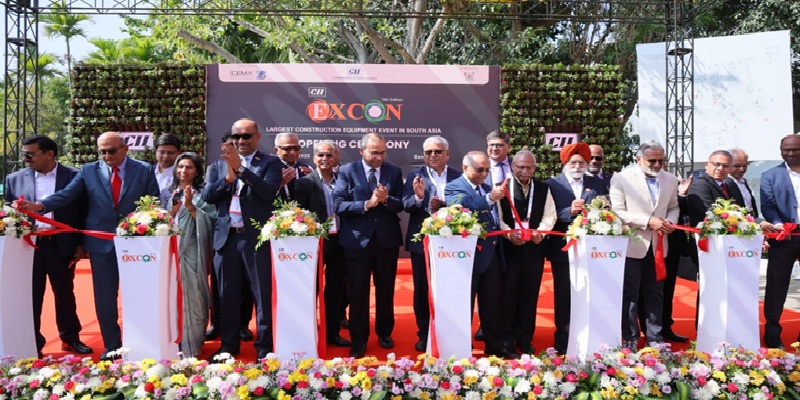
EXCON 2025 Sets New Benchmarks for India’s Construction Equipment Sector
EXCON 2025 set new benchmarks in scale and participation, reinforcing India’s position as the world’s third-largest construction equipment market and showcasing the sector’s readiness for sust..
Read more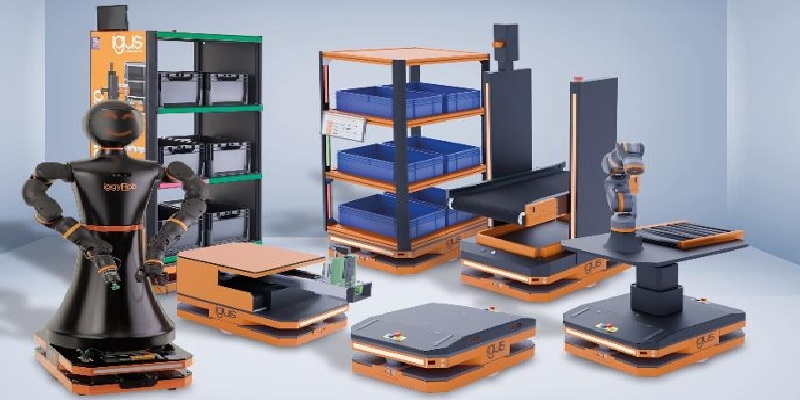
ReBeLMove Pro: Modular robot platform for logistics, assembly and handling
It is based on a compact, rectangular transport robot on four wheels with an electric drive.
Read more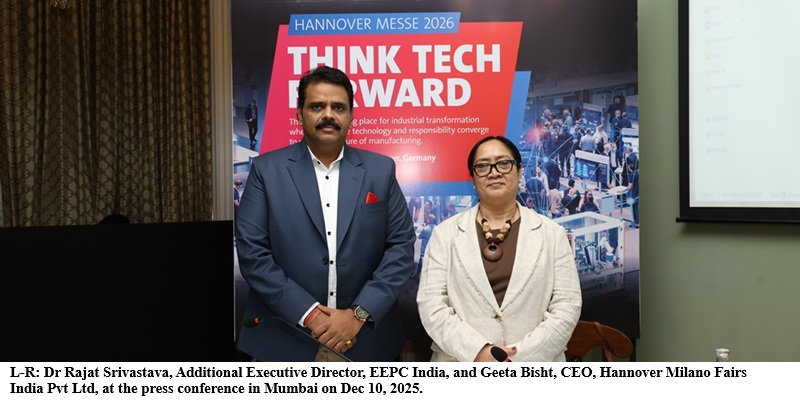
Hannover Messe 2026 to focus on automation & digitalization, adds Defense Area
At the upcoming Hannover Messe, AI will be a recurring theme throughout all the halls, and will play a central role on almost all stands.
Read moreRelated Products

Digital Colony Counter
Rising Sun Enterprises supplies digital colony counter.
Robotic Welding SPM
Primo Automation Systems Pvt. Ltd. manufactures, supplies and exports robotic welding SPM.

Heat Exchanger Scale Removal Compound -hesr-300
Hi There!
Now get regular updates from IPF Magazine on WhatsApp!
Click on link below, message us with a simple hi, and SAVE our number
You will have subscribed to our Industrial News on Whatsapp! Enjoy






